

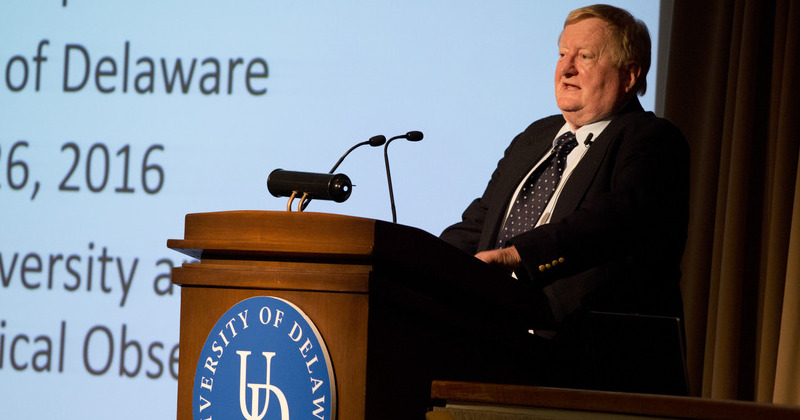
In Memoriam: Henry L. "Harry" Shipman
June 12, 2025
Campus community remembers longtime astronomy professor who received Francis Alison Award
Henry L. “Harry” Shipman, a national pioneer in the study of white dwarf stars who taught at the University of Delaware for 45 years and received the University's highest faculty honor, died April 29, 2025, surrounded by his family in Hockessin, Delaware. He was 77.
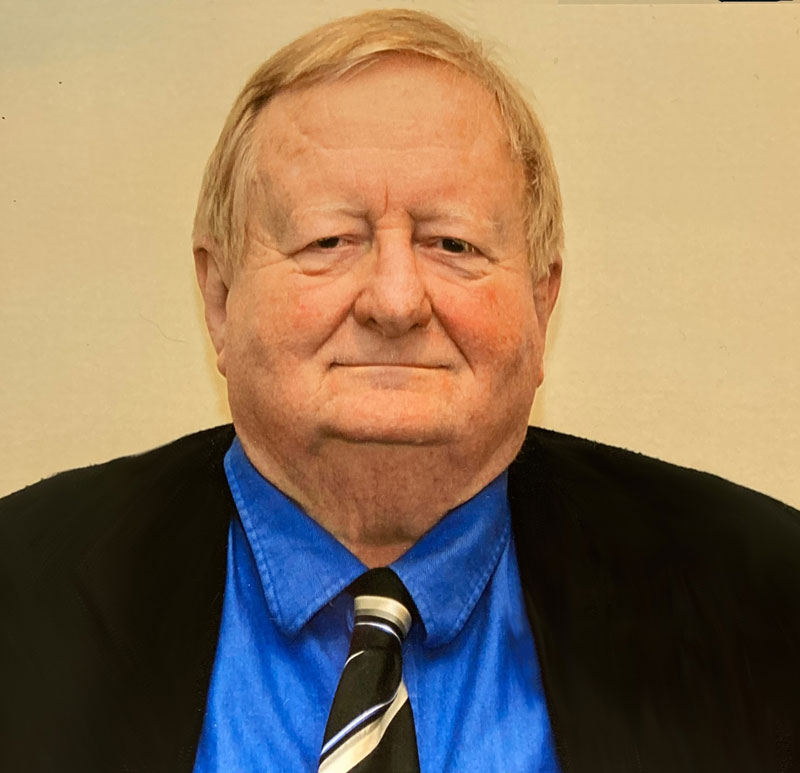
Dr. Shipman joined the University of Delaware Department of Physics and Astronomy in 1974 as an assistant professor, becoming associate professor in 1977 and a full professor in 1981. He was named Annie Jump Cannon Professor of Astronomy in 2003.
He was awarded an Excellence in Teaching Award in 1984, an honor which includes a brick inscribed with his name in Mentors’ Circle. In 1988, Dr. Shipman became the 10th professor to receive the University’s highest faculty honor—the Francis Alison Award, given annually to a faculty member who characterizes “the scholar-schoolmaster,” as exemplified by the Rev. Dr. Francis Alison who founded the institution that is now the University of Delaware.
A fellow of UD’s Center for Advanced Study, he served as director of the Center for Teaching Effectiveness from 1988-94.
In 2000, Dr. Shipman helped establish the campus Planet Walk, a scale model of the solar system with granite markers positioned across campus, from the sun near Old College to Pluto, the Ice Planet, in front of the Fred Rust Ice Arena.
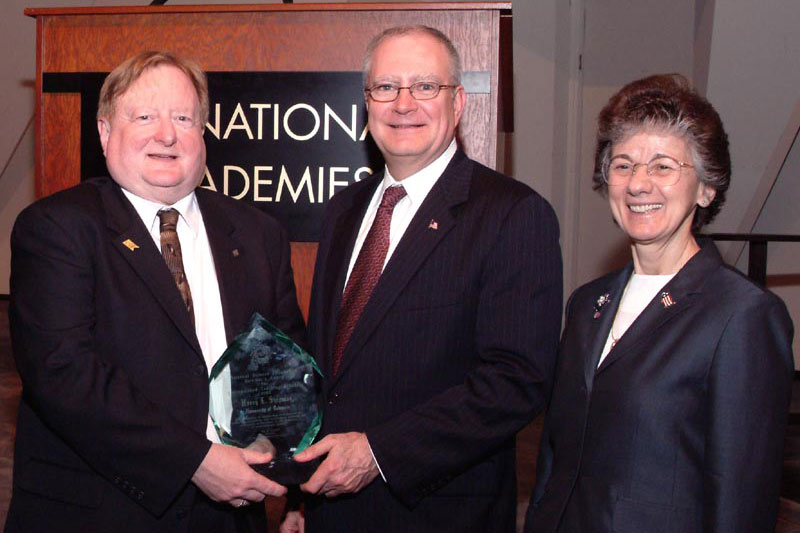
The National Science Foundation in 2003 awarded Dr. Shipman its prestigious Director’s Award for Distinguished Teaching Scholars, the highest award presented to professors who excel at both undergraduate teaching and scholarship. He was recognized officially at a ceremony at the National Academy of Sciences, in Washington, D.C., after meeting with members of Congress. The NSF award citation stated that he “made notable contributions in undergraduate education, including general education science courses for nonscience majors and programs to enhance the training of K-12 teachers.”
He played a key role in securing funding for the Whole Earth Telescope (WET) project, an international collaboration of astronomers interested in studying variable white dwarf stars. In 2006, Dr. Shipman obtained funding to move the project’s headquarters to the Mount Cuba Astronomical Observatory (MCAO) in Delaware, in collaboration with the University of Delaware. A member of MCAO’s Board of trustees since 1977, he oversaw the growth of the observatory into a modern facility with a state-of-the-art 1.3m telescope that is focused on student research, and he was a proud supporter of MCAO’s expanding educational programs.
A devoted ice skater, Dr. Shipman was a member of the Delaware Dazzle adult synchronized skating team, and he served as faculty adviser to the student ice skating team the Precisionaires, who won the U.S. Precision National Championship in 1997. He also skated competitively himself, winning bronze medals in the Men’s and Interpretive Men's classes at the 1997 Adult National Championship.
When Dr. Shipman retired in 2019, he was named Annie Jump Cannon Professor Emeritus of Astronomy.
American Astronomical Society tribute
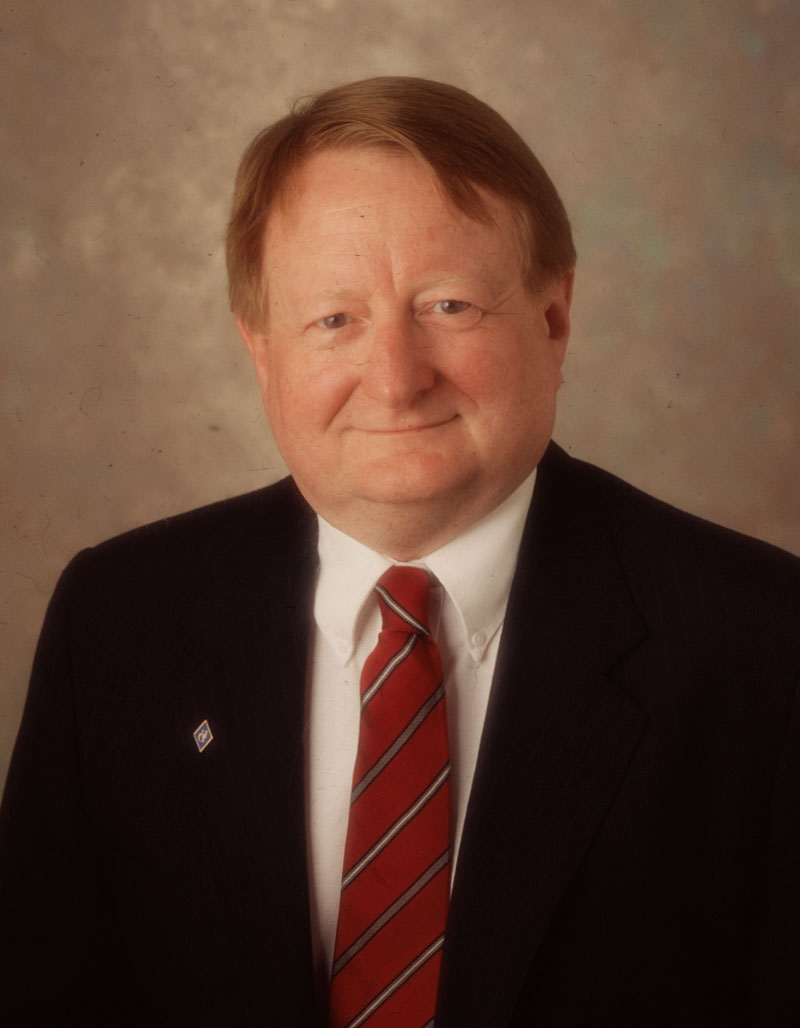
A tribute to Dr. Shipman by Judith Provencal, associate professor of physics and astronomy at UD, posted on the American Astronomical Society website, underscores Dr. Shipman’s importance as an expert and his commitment as an educator.
Calling Dr. Shipman “an early authority in the field of white dwarfs, and one of the first to calculate detailed model atmospheres for these stars,” Provencal writes, “While Harry made significant contributions to the study of white dwarfs, he was even more devoted to science education. Harry was the author of popular books on black holes and the universe. He was a noted professor at the University of Delaware, and served as faculty director of UD’s Center for Teaching Effectiveness. His many contributions to undergraduate education include developing courses for non-science majors, incorporating collaborative learning and problem based learning, and enhancing the training of K-12 teachers. He was a leader in promoting teacher reform at all levels, from kindergarten to university. He was involved in team teaching the Science Semester for Elementary Teacher Education, an interdisciplinary course offered at UD. He strove to introduce problem based and collaborative learning into classrooms. Harry, along with colleagues at Delaware Technical and Community College, gave talks to inner city daycare workers focused on scientific activities to engage young children. He had foresight into the future, believing that average Americans will need some scientific and technological sophistication in order to participate as citizens, workers, and thinking human beings in the 21st century. Harry was, first and foremost, a teacher, and he left a legacy that continues to improve the experiences of students in Delaware.”
About Harry Shipman
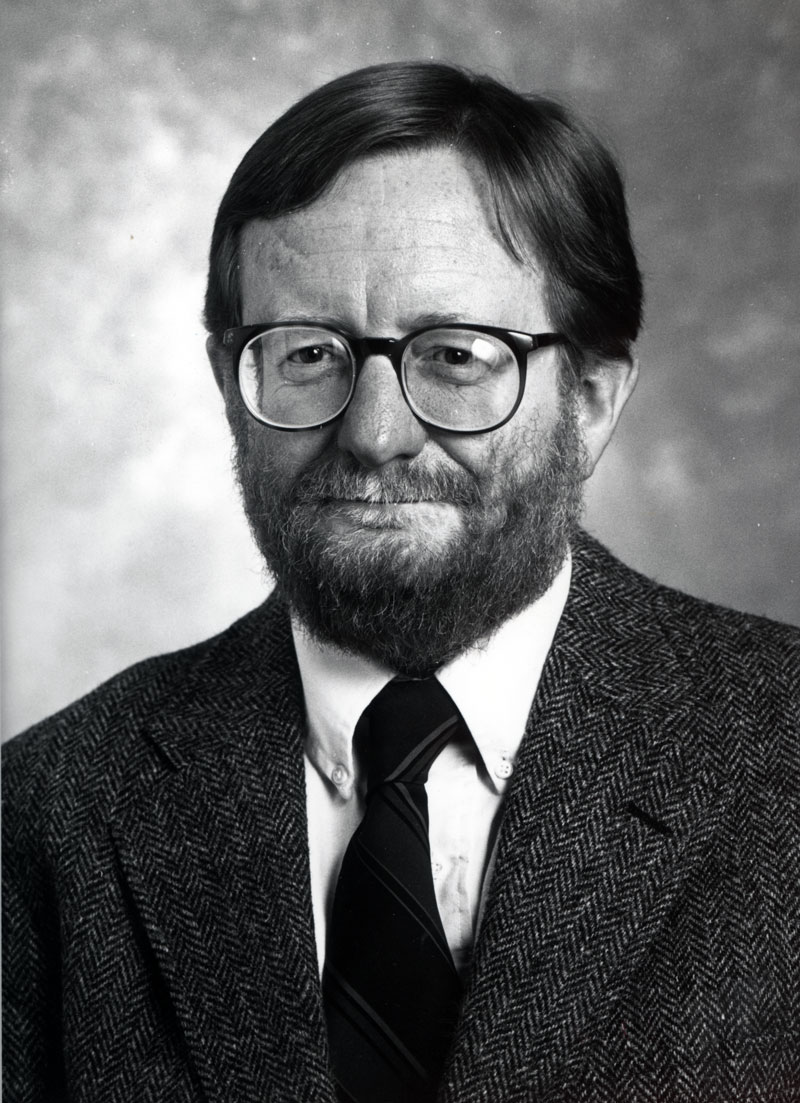
A direct descendant of poet Henry Wadsworth Longfellow, Harry Shipman was born in Connecticut. He was a summa cum laude graduate of Harvard University, where he received his bachelor’s degree in astronomy and astrophysics. He earned master’s and doctoral degrees in astronomy at the California Institute of Technology, where he began his academic career as a teaching assistant. After serving as J.Willard Gibbs Instructor at Yale University, he became an assistant professor at the University of Missouri and an astronomer at the McDonnell Planetarium, both in St. Louis. He then joined the UD faculty in 1974.
His books include Black Holes, Quasars and the Universe, The Restless Universe, Space 2000: Meeting the Challenge of a New Era and Humans in Space: 21st Century Frontiers.
An adviser to the National Aeronautics and Space Administration, Dr. Shipman was an American Association for the Advancement of Science fellow, a Guggenhiem fellow and education officer of the American Astronomical Society.
He is survived by his wife, Valerie Bergeron, children Alice (Steve), Tom, Eric (Rebecca), Jaimie (Heather), and Jeff (Megan), and extended family.
To read his obituary or leave online condolences, visit Chandler Funeral Homes and Crematory.
Contact Us
Have a UDaily story idea?
Contact us at ocm@udel.edu
Members of the press
Contact us at mediarelations@udel.edu or visit the Media Relations website

